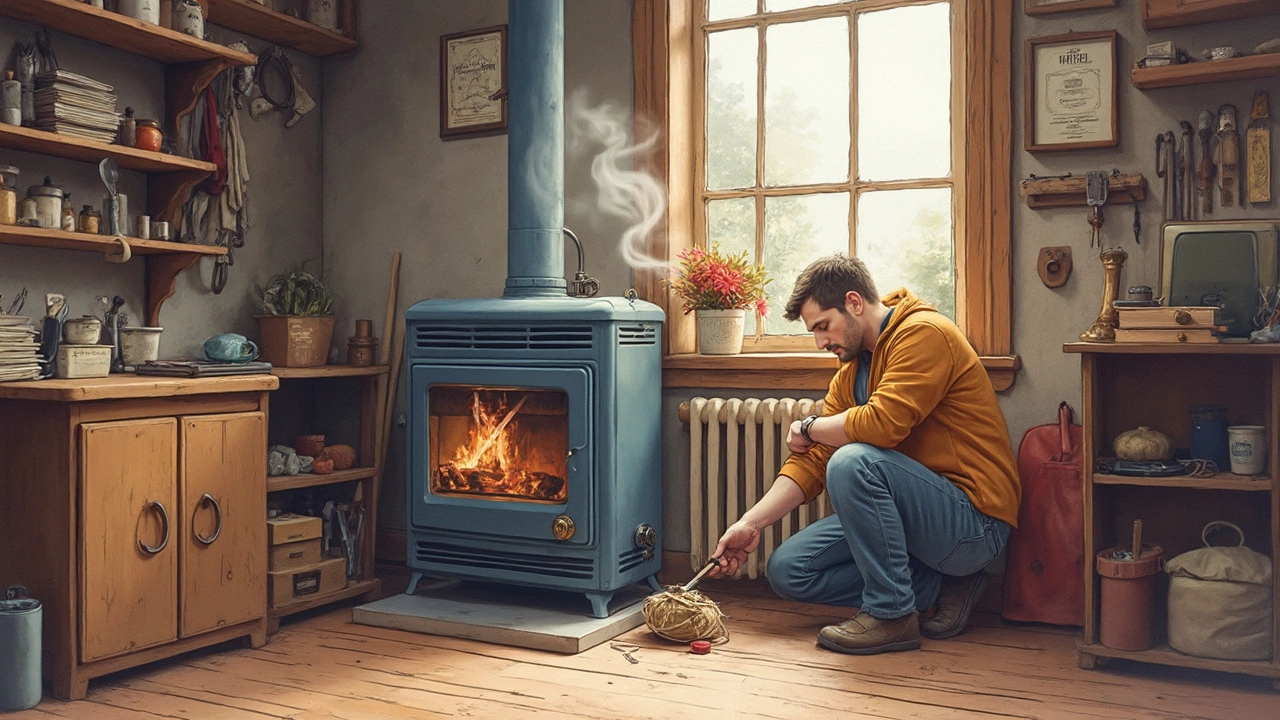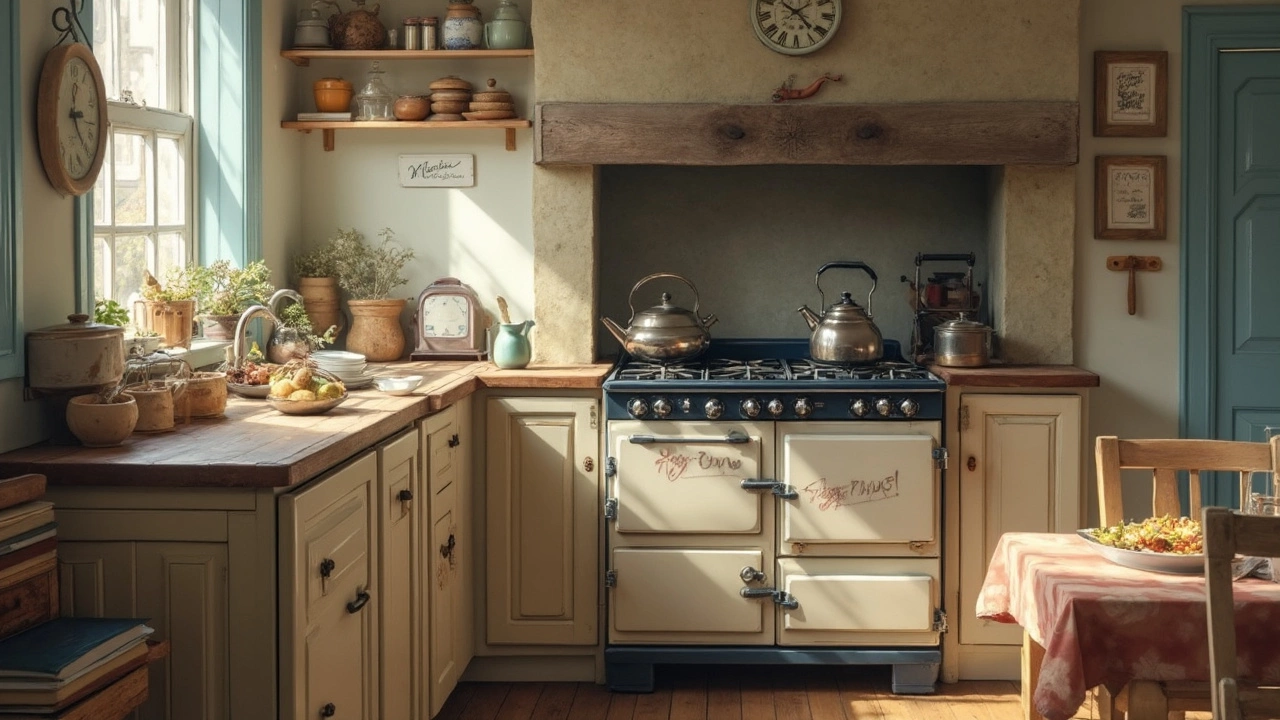Ever wondered just how many years your trusty gas stove or water heater has before it kicks the bucket? Figuring out the life expectancy of gas appliances isn't exactly straightforward, but it's not rocket science either. Most of these fiery machines have a pretty good run, but knowing how long they typically last can be a major plus.
Gas appliances are pretty durable, often living anywhere from 10 to 20 years or more. But a lot can mess with that lifespan. Things like how often you use them, how well you look after them, and even the quality of the appliance itself can make a big difference. Think of them like your car; regular tune-ups and care can keep them running longer without too much fuss.
So what's a regular homeowner to do? Keep reading, and you'll find some solid tips on how to keep your gas appliances in tip-top shape. Not only will you learn how to extend their life, but you'll also get clued in on when it's time to start thinking about replacements. Knowing these little details can really save some headaches—and cash—down the road.
- Understanding Gas Appliance Lifespan
- Factors Affecting Lifespan
- Common Gas Appliances and Their Lifespan
- Tips for Prolonging Life
- Signs It's Time for a Replacement
Understanding Gas Appliance Lifespan
You're probably wondering just how many good years your gas gadget has left. The truth is, the gas appliance lifespan really comes down to a few key things: the type of appliance, how often you use it, and how well you take care of it. A gas stove, for instance, might last about 15 years, while a gas water heater could keep kicking for around 10 to 12 years. It’s all about the make and model, but also how much love and attention you give it.
A neat fact to wrap your head around is that a regularly used gas oven, if treated gently, could last over 13 years. On the flip side, a poorly maintained one might be on its last legs much sooner. Regular use is one thing, but if you tend to leave it on all the time or skip the routine cleaning, you're basically speeding up its decline.
For those who love their stats, check this out:
| Appliance | Expected Lifespan |
|---|---|
| Gas Stove | 15 years |
| Gas Water Heater | 10-12 years |
| Gas Dryer | 13 years |
These numbers don't lie, but remember, they lean heavily on good habits. Regular cleaning, doing recommended check-ups, and using appliances the way they were meant to be used can drag out those years. When you’re sitting there wondering if it's time to call in a repair service or start shopping for a new one, understanding these basic lifespan facts can really help you make a smart call.
Factors Affecting Lifespan
When it comes to figuring out how long your gas appliance will last, a few key things can tip the scales. It's not just about time; it's about how your appliance gets treated and what it's up against. Let’s break it down so you know how to keep your investments running smoothly.
First off, usage matters. An oven that's cranking out meals every night might not last as long as one that's only used for special occasions. Think of it like a marathon runner versus a weekend jogger. That oven putting in daily marathons is bound to have more wear and tear.
Maintenance is another heavy hitter. Regular check-ups, cleaning, and addressing small repairs before they become big ones can add years to your appliance's life. Not cleaning a gas stove's burner, for example, can lead to clogs and uneven heating over time, which can wear it out quicker.
"A well-maintained appliance won't just last longer, but it runs more efficiently and safely," says Jennie Taylor, a home appliance expert with over 20 years of experience.
The environment also plays a part. An appliance stuck in a damp or dusty spot is more likely to face issues. Insulating your water heater properly can also prevent it from working overtime, saving energy and extending its life.
- Quality of the appliance: Investing in a reputable brand can save you money in the long run. High-quality appliances generally have better components, reducing the chance of breakdowns.
- Professional installation: Ensuring your gas appliance is installed by a certified professional guarantees that it meets safety standards and functions optimally.
- Age: Sometimes, an old appliance just can't keep up with newer models in terms of efficiency and technology, no matter how well you've looked after it.
To give you a clearer picture of how some popular gas appliances fare over time, here's a quick look:
| Appliance | Average Lifespan (years) |
|---|---|
| Gas Stove | 15-20 |
| Gas Water Heater | 8-12 |
| Gas Furnace | 15-30 |
Understanding these factors can help you make smarter decisions about your gas appliances. Keep them in mind, and you’ll not only extend your appliances' lifespan, but you’ll also maximize their performance and safety.

Common Gas Appliances and Their Lifespan
When it comes to figuring out how long your gas appliances will last, knowing the average lifespan of common items like water heaters, stoves, and boilers can be super handy. Let's break it down so you can get an idea of how long you can expect each of these appliances to keep doing their thing.
Gas Stoves are one of the more durable kitchen appliances you can get. On average, they can last around 15 years. Keep them clean and well-maintained and you could see them sticking around even longer.
Gas Water Heaters are crucial, especially if you’re fond of long, hot showers. These usually have a lifespan of 8 to 12 years. However, the trick here is regular maintenance. Flushing the tank annually can prevent sediment build-up, helping it last those precious extra years.
Then there are Gas Boilers, which keep your home toasty during the colder months. These typically last 15 to 20 years. But, with regular check-ups, you might squeeze a bit more time out of them.
Gas Fireplaces are a cozy addition to any living room. These can last anywhere from 15 to 25 years, depending on how often they're used and the level of care they receive.
Overall, regular maintenance plays a massive role in maximizing the lifespan of these gas appliances. Here’s a quick glance at the expected lifespans:
| Appliance | Lifespan (Years) |
|---|---|
| Gas Stoves | 15 |
| Gas Water Heaters | 8-12 |
| Gas Boilers | 15-20 |
| Gas Fireplaces | 15-25 |
So, when is the time to start worrying? As these lifespans creep closer, you might notice efficiency drops or repairs getting pricier. That's the cue that your appliance may be ready for retirement. Keep these numbers and tips in mind, and you'll be way ahead, understanding their lifespan inside out.
Tips for Prolonging Life
Want to squeeze every last year out of your reliable gas appliance? It’s not just a matter of luck! With some simple upkeep, you can keep them humming along well past their supposed due date.
Maintenance is key. Think of your appliance as you would think of a car that needs regular check-ups to ensure everything’s running smoothly. Here’s a quick breakdown of what you can do:
- Regular Cleaning: This is the big one. Whether it's the stovetop or the burners, grime builds up fast. It's not just about keeping it looking pretty; gunk can actually mess with how your appliance works.
- Inspect Periodically: Check for any visible signs of wear and tear. For things like frayed hoses on your gas dryer or unusual rust spots on your water heater, don’t wait until it’s too late.
- Service checks: Get a professional in every once in a while to take a deeper look. They can catch things you might miss and tune things up to keep it running more efficiently.
- Vent it Out: Ensure that gas appliances are well-ventilated. This helps prevent carbon monoxide build-up and will also help certain appliances run better.
Now, how do these tips translate into actual longevity? Here in New Zealand, many well-maintained gas appliances tick along happily for a good 15-20 years. So, those extra minutes spent on maintenance can really pay off.
If you do spot anything weird—strange noises, smells, or poor performance—don’t ignore it. The sooner you tackle small issues, the less chance they have to turn into big, costly problems.

Signs It's Time for a Replacement
So, you've had your gas stove or water heater for a while now, but you're starting to feel it might be on its last legs. How can you be sure it's time to say goodbye? Here are some dead giveaways that your gas appliance might be on the outs.
First up, if your appliance is getting old—like pushing 15-20 years—it's worth keeping an eye out for more serious issues popping up. Age isn't just a number when it comes to these things. Older gas appliances might not only become inefficient, but there's also a risk around safety concerns if they're not up to modern standards.
A big red flag is when you start noticing performance drops. A burner that takes longer to heat or a water heater that's constantly running out of hot water can signal wear and tear. Plus, if they start making weird noises like clanking or popping, that could be a sign of internal issues that aren't going away.
If you're dealing with frequent repairs, think about the cost. When those repair bills start adding up to half (or more) of what a new appliance would cost, you're better off replacing it. Spending money on an appliance repair isn't always the best long-term investment.
Lastly, keep an eye (and nose) out for anything unusual. A faint gas smell or visible damage like rust or cracks should be taken seriously and checked out immediately. Safety first, as they say.
- Age of appliance (15-20 years)
- Drop in performance (inconsistent heating, efficiency loss)
- Unusual noises (clanking, popping)
- Frequent, costly repairs
- Visible damage or gas odors
Knowing these signs can help you stay ahead and make sure you're not caught off guard. It's all about making smart choices for your home and wallet!

I am an expert in the services industry with a focus on appliance repair. My passion lies in understanding how things work and educating others in simple, engaging ways. This enthusiasm fuels my writing, where I delve into topics around appliance maintenance and troubleshooting. I aim to make these subjects clear and accessible to all readers.